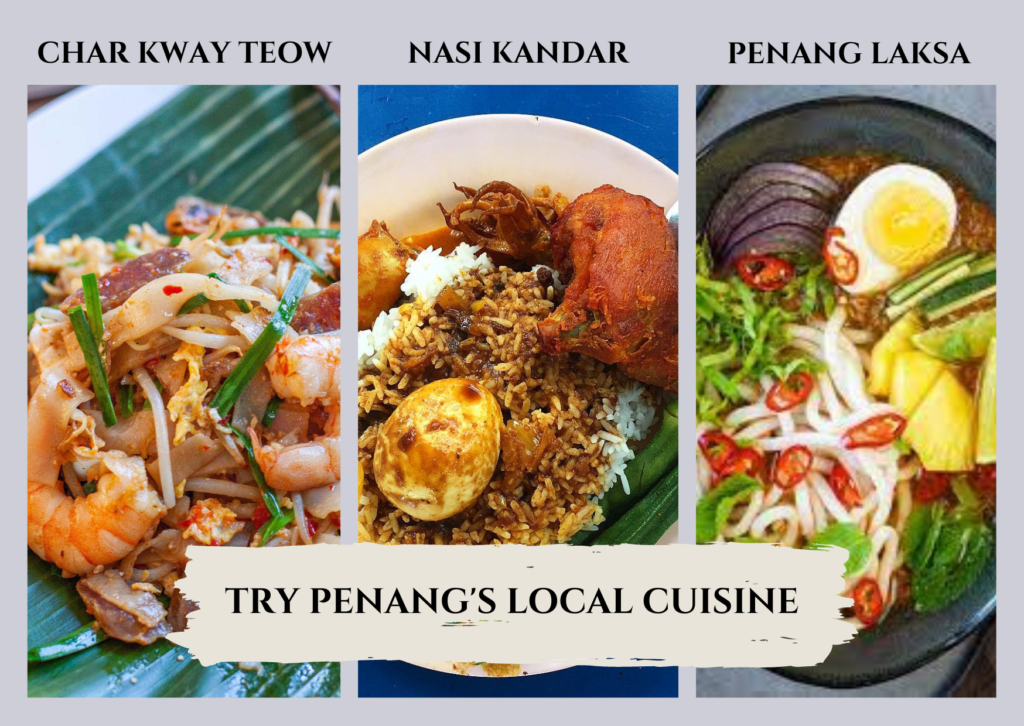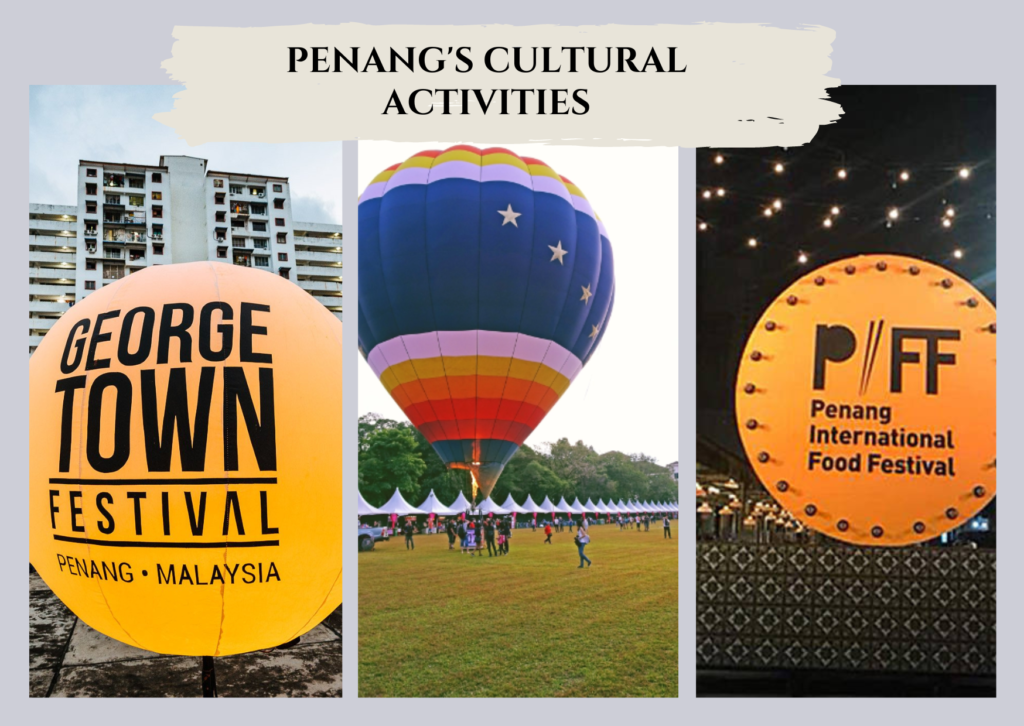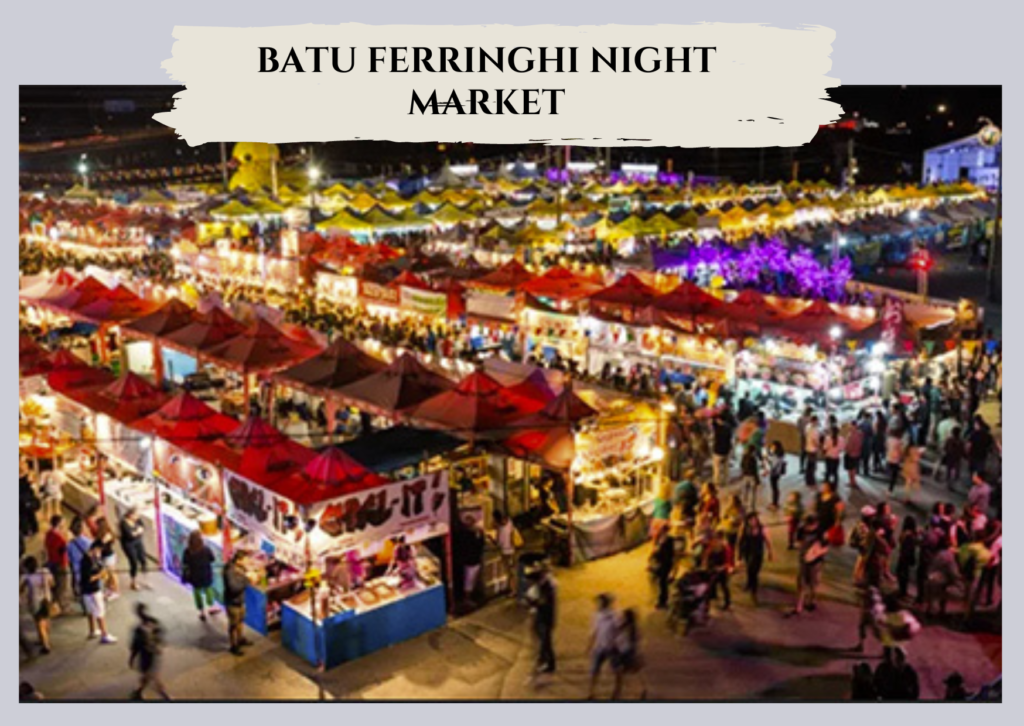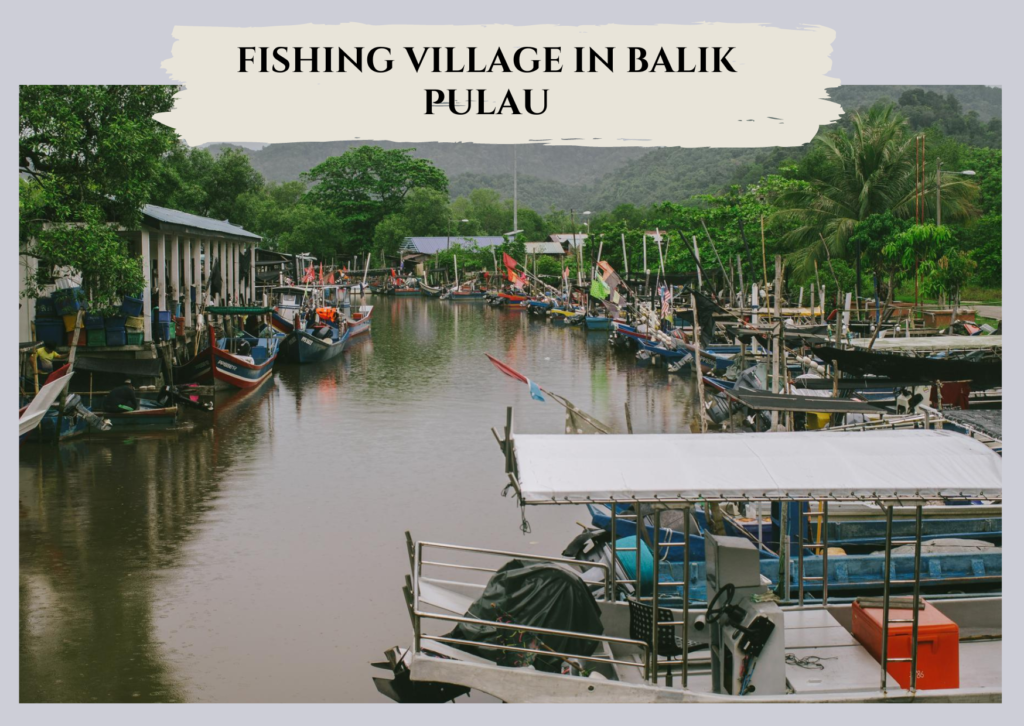If you are a travel enthusiast who loves to explore different cultures, a bus tour can be an excellent way to immerse yourself in the local way of life. Travelling by bus allows you to experience the real culture of a place, as you interact with locals, try local cuisine, and participate in cultural activities. In this blog, we will provide you with tips on how to fully experience local culture on a bus from Singapore to Penang.
Try Local Cuisine

One of the best ways to experience local culture is through food. When you are on a bus tour, make sure to try local delicacies and dishes. Each region has its unique food culture, and trying out the local food is a great way to understand the local way of life. For instance, if you are travelling by bus from Singapore to Penang, don’t forget to try the famous Penang laksa, char kway teow, and nasi kandar. These dishes are an essential part of Penang’s food culture and will give you a taste of the local cuisine.
Learn the Language
Farmiliarising yourself with the local language can help you communicate with locals and gain a deeper understanding of their culture. Before your bus tour, try to learn some basic phrases in the local language. For instance, if you are travelling from Singapore to Penang, try to learn some Malay phrases. Greeting people in their native language, ordering food, or asking for directions can create a positive impact on the locals. It also shows your willingness to learn and understand their culture.
Participate in Cultural Activities
Participating in cultural activities is an excellent way to experience the local way of life. Look for festivals, cultural events, or traditional performances that you can attend during your tour. If you are travelling by bus from Singapore to Penang during certain times of the year, you can attend the Penang International Food Festival, Penang Hot Air Balloon Fiesta, or the George Town Festival. These events showcase the rich cultural heritage of Penang and provide a glimpse into the local way of life.
Explore Local Markets
Local markets are a great place to experience the local way of life. When you are on a bus tour, make sure to visit local markets and bazaars. These markets are often bustling with activity, and you will find a variety of local goods, handicrafts, and souvenirs. If you have some time left from your bus ride from Singapore to Penang, don’t forget to visit the famous Batu Ferringhi Night Market. It is renowned for its local goods and street food.
Get Off the Beaten Path
When you are on a bus tour, it is essential to get off the beaten path and explore the lesser-known areas. These areas provide a more authentic experience and give you a chance to interact with locals. For instance, if you are travelling from Singapore to Penang, make sure to visit a few agricultural towns and fishing villages of Penang, such as Balik Pulau and Teluk Bahang. They are known for their natural beauty and will provide a glimpse into the local way of life.
Explore Penang Like a Local with KKKL Travel & Tours
Experiencing local culture on a bus tour requires an open mind, a willingness to learn, and a spirit of adventure. You can immerse yourself in their way of life by trying local cuisine, learning the language, participating in cultural activities, exploring local markets, and visiting places that haven’t been explored by many tourists. So, if you are planning a bus tour from Singapore to Penang, make sure to follow these tips and fully experience the local culture.
Are you looking for a comfortable and convenient way to experience local culture on a bus from Singapore to Penang? Look no further than KKKL Travel & Tours! Book your trip today and enjoy a seamless journey with top-notch amenities, experienced drivers, and unbeatable prices. Don’t miss out on this opportunity to fully immerse yourself in the local culture of Penang. Book your bus from Singapore to Penang with KKKL Travel & Tours now! If you would like to explore more exciting travel ideas, don’t forget to check out our blog post – “A Bus Journey from Singapore to Tioman Island“.






